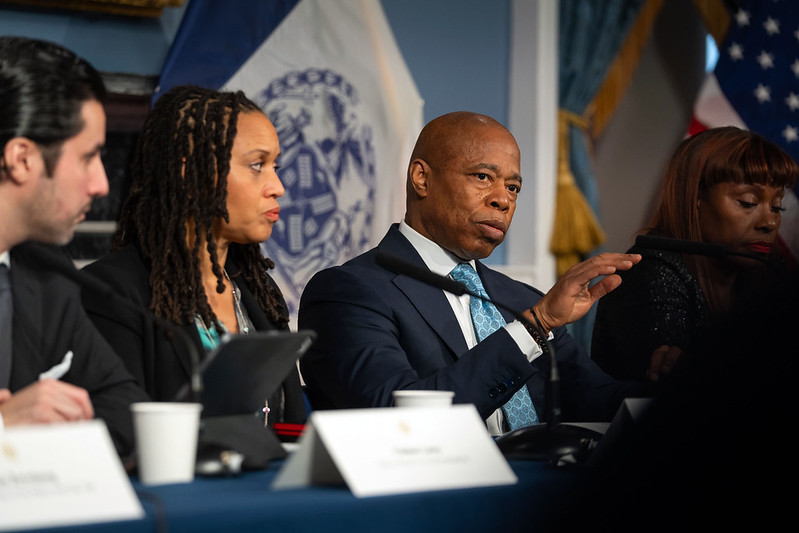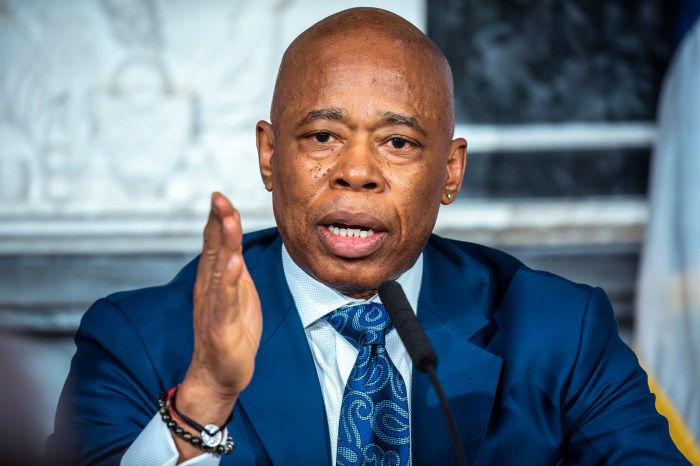By Eric Jankiewicz
The governor and state lawmakers agreed to extend the rent laws until Tuesday after the legislative session ended Wednesday without resolving the impasse.
The laws that control the rise in rents for nearly 1 million New York City rent-stabilized apartments lapsed June 15 after elected officials in Albany failed to come to a deal.
Gov. Andrew Cuomo and legislative leaders agreed Thursday night to the five-day extension, which is retroactive.
State Assemblyman Mike Miller (D-Woodhaven) had predicted new rent laws would not be enacted until at least late Friday or early next week. For now, Miller and the other members of the Assembly were trying to pass a bill that would extend laws to protect rent-stabilized apartments for at least three months, giving elected officials time to cobble together a more comprehensive law.
“We knew this was going to expire,” said state Sen. Joseph Addabbo, (D-Howard Beach) whose district covers Ridgewood, Howard Beach and other areas. “We should’ve been voting on this April 2nd. Why did we wait so long?”
In Queens, tenants, community activists and small apartment owners converged in Queens Borough Hall earlier this week in an attempt to get the city to protect affordable housing and enact further rent reform.
“Real estate is to New York State as oil is to Texas,” a rent-stabilized tenant said during the meeting in Queens with the New York City Rent Guidelines Board, a group whose nine members were appointed by the mayor.
“And just like in Texas, we have big real estate lobbies over here that are influencing decisions in Albany. New York City is great because of rent stabilization. We don’t need a city that is just filled with luxury apartments.”
The rent board establishes rent adjustments for the rent-stabilized units in the city. There are 135,000 of these apartments in Queens. The board holds annual hearings in the boroughs where the public is invited to give their input and suggestions.
Speaking from Albany, Addabbo worried that with so much pressure on the Capitol to get something done, the decision would ultimately be made by the three men in the room, a reference to Gov. Andrew Cuomo and the new majority leaders of the state Senate and Assembly.
“It goes back to the three men in the room,” he said. “There’s no true discussion up here. But if did it in April, it would’ve been an open process that would create a better bill.”
Some observers said the cliffhanger developed because longtime Assembly Speaker Sheldon Silver, a fierce protector of rent regulation for his city constituents, had been forced to give up the leadership post after he was indicted on corruption charges. The Democrat still represents the Upper West Side and Lower Manhattan.
And even with grassroots organizations like Chhaya and the MinKwon Center for Action urging the rent board to lower rent rates by at least 5 percent, Addabbo said any new bill to be enacted would most likely just extend the expired rent regulations.
“I worry about my quality of life because of unfair rent hikes,” one member of the public said.
The old rent laws dictated that when an apartment went above $2,500, it would no longer be protected by incremental increases and rise to market rate levels. But Miller was hoping that any new bills would increase that cap annually, an effort to preserve the stock of stabilized apartments.
Before the regulations expired Monday night, Mayor Bill de Blasio and other officials told New Yorkers that rents would not immediately go up. De Blasio urged people to call 311 if any landlord attempted to take advantage of the lapse and raise rents or evict tenants. Officials expect the impasse to be settled soon. All leases are still in effect during the hiatus.
De Blasio, who has called the down-to-the-wire approach to the expiration deadline unacceptable, Assembly Democrats and Cuomo want the rent laws to be strengthened so that more apartments remain under regulation and continue to be affordable housing.
At issue is the so-called vacancy decontrol provision, which allows landlords to charge market rates for a rent-stabilized apartment when the tenant moves out and the rent exceeds $2,500. Some estimate that 100,000 New York City apartments could move to the free market in the next few years if the vacancy decontrol provision is not altered. The Democrats want vacancy decontrol to be revamped to maintain a larger stock of affordable apartments. The Republicans passed a measure extending the rent laws for eight years but with fewer protections for tenants than the Democrats were seeking.
“A straight extender of tent regulation would be a huge loss for the people of New York,” state Attorney General Eric Schneiderman said in a statement. “Everyone has known about this deadline for years—timing is not a credible excuse.”
Reach reporter Eric Jankiewicz by e-mail at ejank
































